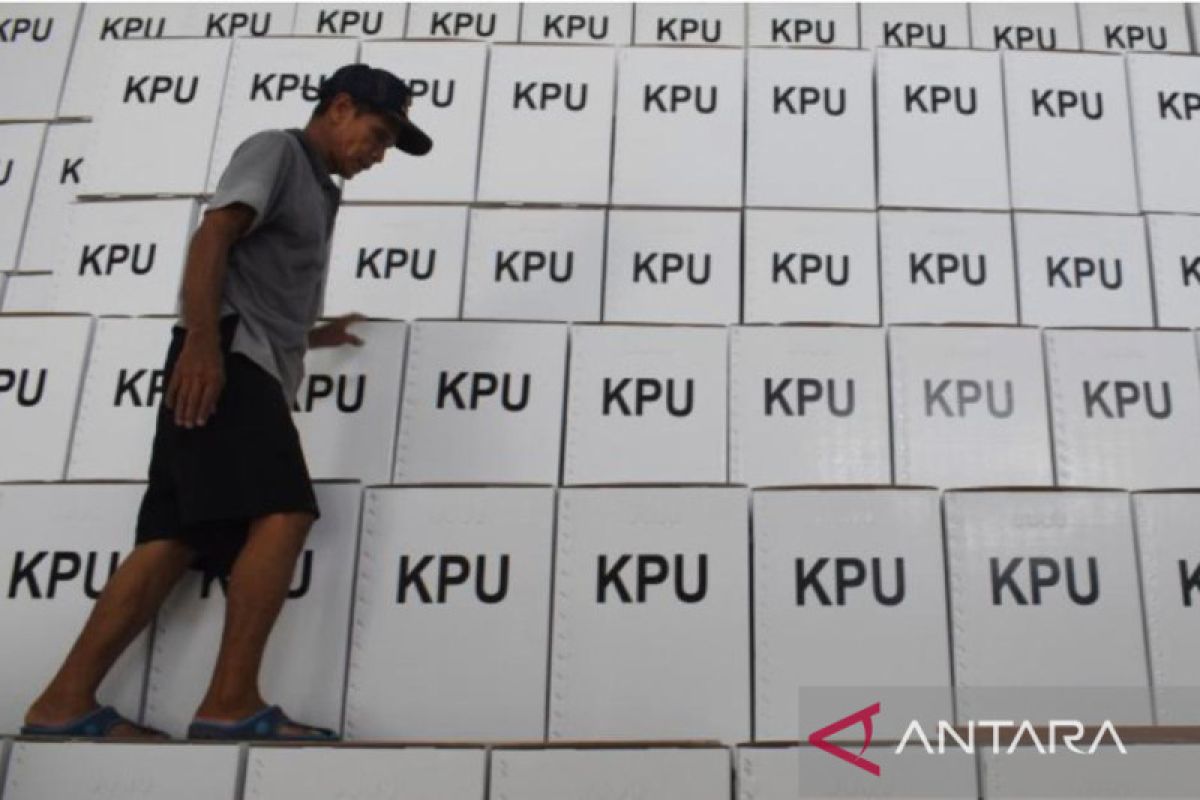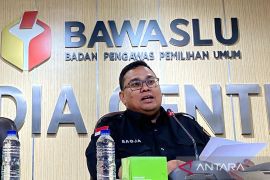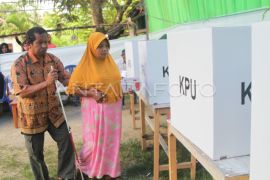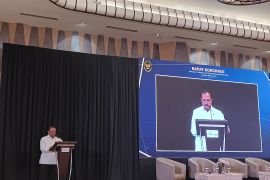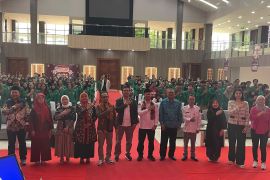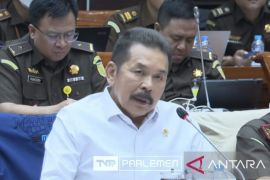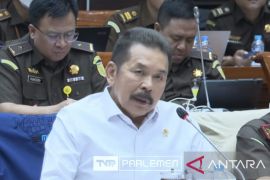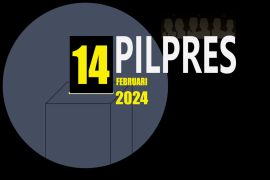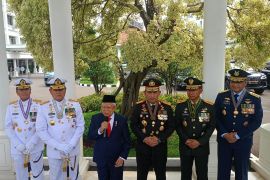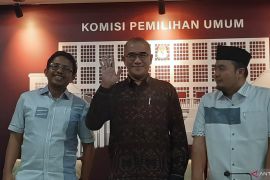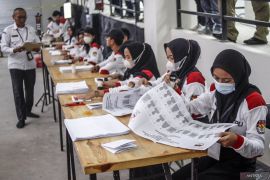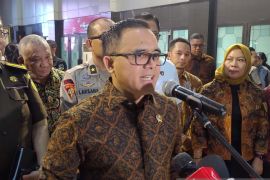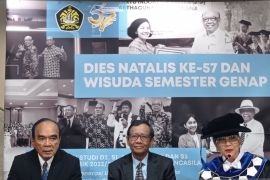KPK's survey found that in order to win the election, prospective regional heads, such as mayors and district heads, had to prepare funding amounting to Rp20 billion-Rp30 billion, while governor and deputy governor candidates were required to allocate a budget of Rp100 billion.
These high costs have driven regional heads to apply various means to return the capital.
The KPK data shows that as of August 2022, as many as 310 members of the Indonesian House of Representatives (DPR) and Regional House of Representative (DPRD), 154 mayors and district heads and deputies, and 22 governors were involved in corruption cases.
The KPK identified that the main method of political corruption occurred in the form of authority abuse by using position to enrich themselves or their group to satisfy allies or as compensation as well as to maintain sources of power.
During the webinar titled "Is Political Party Assistance a Solution to Prevent Corruption?" on September 16, 2022, KPK Deputy Chairperson Nurul Ghufron stated that the salary of regional heads is relatively disproportionate to their workload and the funds that they had spent on their campaigns. Hence, they decided to practice corruption as a way to return their campaign capitals.
This imbalance resulted in a political process that should have been conducted conscientiously and turned into a business transaction.
Political parties actually played an important role in Indonesia according to Law Number 2 of 2008 concerning Political Parties.
The law mandates five strategic functions of political parties to run the nation and the state comprising as a means of political education; as a means of national unity and integrity; to absorb, gather, and connect people's aspirations; as a means of citizens’ political participation; and as a means of recruiting cadres to fill political positions.
The KPK considers the position of political parties to be highly strategic in carrying out candidate pairs in producing people's representatives, presidents, vice presidents, and regional heads, with quality and integrity, that will lead Indonesia.
Given the importance of the position of political parties in the pillars of life, the KPK expects political parties to become the pillars of democracy as the goal of the nation and the state.
KPK and LIPI studies also concluded that every political party must fulfill its five functions as stated in the political party integrity system (SIPP) comprising standards of code of ethics, political party finances with clarity of financial sources and budget allocations, and good cadres' recruitment with regulations and systems.
This is followed by the internal democracy of political parties, namely democratization to determine the management and decision-making in parties, while the last one is regeneration with regulations accompanied by monitoring and evaluation.
Political party funds
In an effort to invite political parties to comply with SIPP, the KPK along with the Ministry of Home Affairs also encourage an increase in subsidy funds for political parties. This step must be taken since the funds for political parties in Indonesia are still relatively small, specifically Rp1,000 per voice at the central government and Rp1,200-Rp1,500 per voice for regions from the results of the last general election.
At the webinar, the minister of home affairs, represented by Inspector General of the Ministry of Home Affairs, Tomsi Tohir Balaw, explained that the fulfillment of political party finances is a step to encourage more professional, transparent, and accountable political parties.
Increasing political party funds will encourage the improvement of the quality of political party's financial management that ultimately creates integrity.
Hence, the Ministry of Home Affairs, along with DPR, had encouraged an increase in financial assistance to political parties based on the baseline needs of political parties.
The target is to increase funds for political parties to Rp3,000 per vote for the upcoming 2023 fiscal year. The Ministry of Home Affairs hopes that with the increase in political party financial assistance, the political parties' financial independence will be formed and contribute optimally in developing a better democratic life.
The funding assistance is also expected to trigger innovation and empower political parties to improve the quality of their human resources and strengthen institutional capacity.
Meanwhile, a member of the KPK Supervisory Board, Syamsuddin Haris, who is concurrently a former LIPI researcher, noted that the figure to be submitted in 2023 is a 30-percent scheme of the system for increasing political party funds.
Based on the results of a study by the KPK and LIPI in 2018-2019, the total financial needs of political parties in one year is Rp16,992 per vote. From this figure, the state could provide a subsidy of 50 percent, which is Rp8,461 per vote.
Haris believes that after all, state subsidies to political parties should open up opportunities for them to have financial autonomy.
This step is taken to avoid political parties from being fully funded by the government since they can fund themselves through the schemes of their own management.
Similarly, Deputy for Prevention and Monitoring of the KPK, Pahala Nainggolan, said that at this early stage, the figure that would be proposed was 30 percent in the first year. Later, if the political parties develop and follow the SIPP, the funds will be increased for the next five years to the level of 100 percent.
If the proposal is finally approved, Nainggolan noted that a revision of Government Regulation (PP) Number 1 of 2018 concerning Political Party Financial Assistance must be conducted at the earliest since the PP has not included the use of SIPP and the subsidy budget for political parties. In addition, Law Number 2 concerning Political Parties must be revised to serve as a strong legal umbrella.
In response to this, Deputy Chairman of the Central Executive Board (DPP) of the United Development Party (PPP), Arsul Sani, lauded the government and KPK for their efforts to increase political party aid funds. SIPP is said to be an effort to prevent corruption within the political parties themselves.
In realizing democracy without corruption, SIPP must be implemented to create a healthy political party. Moreover, it can bring integrity to the upcoming general election.
Related news: President seeks quick ratification of Asset Confiscation Bill: Mahfud
Related news: AGO, Trade Ministry ink MoU on corruption prevention in trade
Editor: Rahmad Nasution
Copyright © ANTARA 2022
